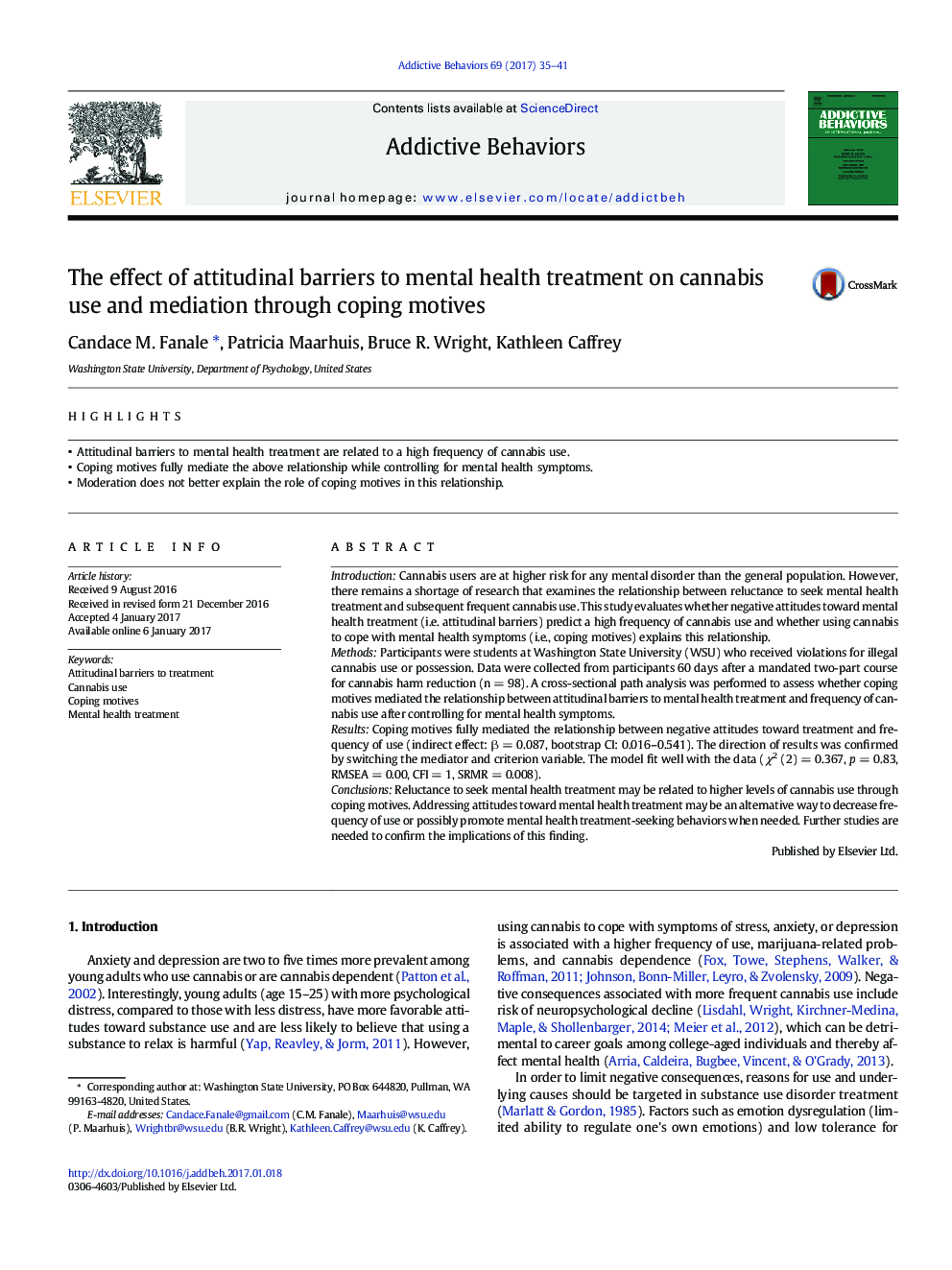| کد مقاله | کد نشریه | سال انتشار | مقاله انگلیسی | نسخه تمام متن |
|---|---|---|---|---|
| 5037723 | 1472502 | 2017 | 7 صفحه PDF | دانلود رایگان |
- Attitudinal barriers to mental health treatment are related to a high frequency of cannabis use.
- Coping motives fully mediate the above relationship while controlling for mental health symptoms.
- Moderation does not better explain the role of coping motives in this relationship.
IntroductionCannabis users are at higher risk for any mental disorder than the general population. However, there remains a shortage of research that examines the relationship between reluctance to seek mental health treatment and subsequent frequent cannabis use. This study evaluates whether negative attitudes toward mental health treatment (i.e. attitudinal barriers) predict a high frequency of cannabis use and whether using cannabis to cope with mental health symptoms (i.e., coping motives) explains this relationship.MethodsParticipants were students at Washington State University (WSU) who received violations for illegal cannabis use or possession. Data were collected from participants 60 days after a mandated two-part course for cannabis harm reduction (n = 98). A cross-sectional path analysis was performed to assess whether coping motives mediated the relationship between attitudinal barriers to mental health treatment and frequency of cannabis use after controlling for mental health symptoms.ResultsCoping motives fully mediated the relationship between negative attitudes toward treatment and frequency of use (indirect effect: β = 0.087, bootstrap CI: 0.016-0.541). The direction of results was confirmed by switching the mediator and criterion variable. The model fit well with the data (Ï2 (2) = 0.367, p = 0.83, RMSEA = 0.00, CFI = 1, SRMR = 0.008).ConclusionsReluctance to seek mental health treatment may be related to higher levels of cannabis use through coping motives. Addressing attitudes toward mental health treatment may be an alternative way to decrease frequency of use or possibly promote mental health treatment-seeking behaviors when needed. Further studies are needed to confirm the implications of this finding.
Journal: Addictive Behaviors - Volume 69, June 2017, Pages 35-41
